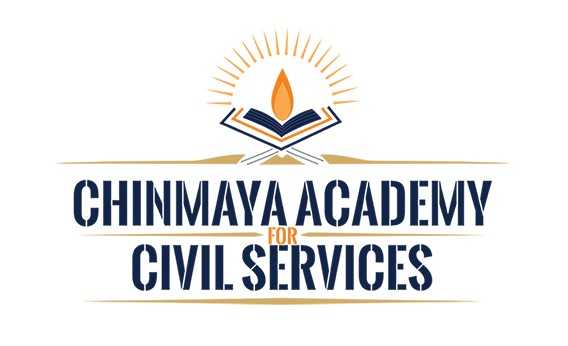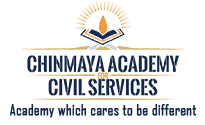The Civil Services Examination (CSE) of the Union Public Service Commission (UPSC) is conducted in three phases: the Prelims, Mains, and Interview. During the Mains exam, candidates must choose an optional subject, greatly impacting their ranking. Literature subjects have been showing an upward trend in recent years in terms of success rate.
The UPSC allows Dogri literature as an optional subject for the Civil Services Main Examination. Dogri is one of the 22 official languages of India recognized in the Constitution’s 8th schedule and has a rich literary tradition, including original works such as dramas, poetry, philosophical writing, and translations. Once familiar with the Dogri Literature Syllabus, candidates should follow the texts recommended by the UPSC in the Paper-II syllabus.
Candidates fluent in Dogri and have either studied it in school or grew up speaking it as their native language are encouraged to choose Dogri as their optional subject for the UPSC Civil Services Exam. The exam will be written in the Devanagari script. This article provides a comprehensive overview of the syllabus for Dogri as an optional subject for the Civil Services Exam. The syllabus includes two papers, each worth 250 marks, totalling 500 marks. Here is the syllabus for the Dogri optional in the IAS Mains exam.
DOGRI
PAPER I
HISTORY OF DOGRI LANGUAGE AND LITERATURE
(Answers must be written in Dogri)
Section A
History of Dogri Language
1. Dogri language: Origin and development through different stages.
2. Linguistic boundaries of Dogri and its dialects.
3. Characteristic features of Dogri Language.
4. Structure of Dogri Langauge:
(a) Sound Structure:
Segmental : Vowels and Consonants
Non-segmental : Length, Stress, Nasalization, Tone and Junture.
(b) Morphology of Dogri:
(i) Inflection Categories: Gender, Number, Case, Person, Tense and Voice.
(ii) Word Formation; use of prefixes, infixes and suffixes.
(iii) Vocabulary: tatsam, tadbhav, foreign and regional.
(c) Sentence Structure; Major Sentence-types and their constituents, agreement and concord in Dogri syntax.
5. Dogri Language and Scripts: Dogre/Dogra Akkhar, Devanagari and Persia.
Section B
History of Dogri Language
1. A brief account of Pre-independence Dogri Literature: Poetry & Prose.
2. Development of modern Dogri Poetry and main trends in Dogri Poetry.
3. Development of Dogri short-story, main trends and prominent short-story writers.
4. Development of Dogri Novel, main trends and contribution of Dogri Novelists.
5. Development of Dogri Drama and contribution of prominent playwrights.
6. Development of Dogri Prose; Essays, Memoirs and travelogues.
7. An introduction to Dogri Folk Literature—Folk songs, Folk tales 7 Ballads.
PAPER -II
TEXTUAL CRITICISM OF DOGRI LITERATURE
(Answers must be written in Dogri)
Section A
Poetry
1. Azadi Paihle Di Dogri Kavita
The following poets:Devi Ditta, Lakkhu, Ganga Ram, Ramdhan, Hardutt,Pahari Gandhi Baba Kanshi Ram & Permanand Almast
2. Modern Dogri Poetry Azadi Bad Di Dogri Kavita
The following poets : Kishan Smailpuri, Tara Smailpuri, Mohan Lal Sapolia,Yash Sharma, K.S. Madhukar, Padma Sachdev, Jitendra Udhampuri, Charan Singh and Prakash Premi
3. Sheeraza Dogri Number 102, Ghazal Ank
The following poets : Ram Lal Sharma, Ved Pal Deep, N.D. Jamwal, Shiv Ram Deep, Ashwini Magotra and Virendra Kesar
4. Sheeraza Dogri Number 147, Ghazal Ank
The following poets: R.N. Shastri, Jitendra Udhampuri, Champa Sharma and Darshan Darshi.
5. Ramayan (Epic) by Shambhu Nath Sharma (up to Ayodhya Kand)
6. Veer Gulab (Khand Kavya) by Dinoo Bhai Pant.
Section B
Prose
1. Ajakani Dogri Kahani
The following Short Story Writers :Madan Mohan Sharma, Narendra Khajuri and B.P. Sat
2. Ajakani Dogri Kahani Part-II
The following Short Story Writers :Ved Rahi, Narsingh Dev Jamwal, Om Goswami, Chahttrapal, Lalit Magotra, Chaman Arora and Ratan Kesar.
3. Khatha Kunj Bhag II
The following Story Writers :Om Vidyarthi, Champa Sharma and Krishan Sharma.
4. Meel Patthar (collection of short stories) by Bandhu Sharma.
5. Kaiddi (Novel) by Desh Bandhu Dogra Nutan.
6. Nanga Rukkh (Novel) by O.P. Sharma Sarathi.
7. Nayaan (Drama) by Mohan Singh.
8. Satrang (A collection of one act plays).
The following play wrights :Vishwa Nath Khajuria, Ram Nath Shastri, Jitendra Sharma, Lalit Magotra and Madan Mohan Sharma.
9. Dogri Lalit Nibandh
The following authors:Vishwa Nath Khajuria, Narayan Mishra, Balkrishan Shastri, Shiv Nath, Shyam Lal Sharma, Lakshmi Narayan, D.C. Prashant, Ved Ghai, Kunwar Viyogi.


